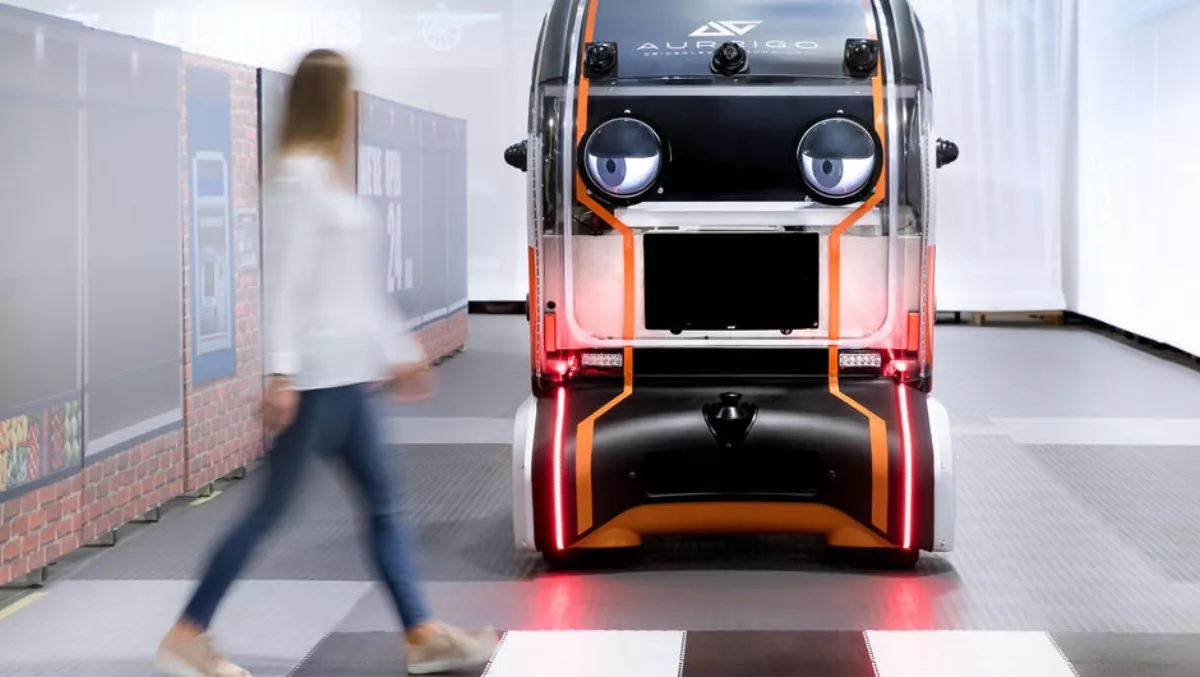
Eye spy: Jaguar Land Rover trials 'eye pods' on autonomous vehicles
As the autonomous vehicle revolution continues to thrill and frighten many people, some of us may wonder if we can trust one of those vehicles to stop for us when we're crossing the road.
Automaker Jaguar had recognised this fear and has now gone as far as adding 'virtual eyes' to the front of its autonomous intelligent pods.
The virtual eye pods make contact with pedestrians to acknowledge that it has seen them and will take action to avoid running into them.
The eye pods also have one other critical function: they will help researchers and automakers work out how much information future self-driving vehicles should share with road users so that everyone can trust the technology.

The entire project is the work of Jaguar Land Rover and a team of cognitive psychologists. It's also part of a government-supported UK Autodrive project.
The company explains:
The intelligent pods, run autonomously on a fabricated street scene in Coventry, while the behaviour of pedestrians is analysed as they wait to cross the road.
The 'eyes' have been devised by a team of advanced engineers, working in Jaguar Land Rover's Future Mobility division.
The pods seek out the pedestrian - appearing to 'look' directly at them - signalling to road users that it has identified them, and intends to take avoiding action.
Jaguar Land Rover's future mobility research manager Pete Bennett says, "It's second-nature to glance at the driver of the approaching vehicle before stepping into the road. Understanding how this translates in tomorrow's more automated world is important.
Some studies have suggested that 635 of pedestrians and cyclists believe they would feel less safe it they shared the road with a self-driving vehicle.
"We want to know if it is beneficial to provide humans with information about a vehicle's intentions or whether simply letting a pedestrian know it has been recognised is enough to improve confidence.
Jaguar Land Rover says its number one priority is safety, particularly as it invests in self-driving technology and works towards its goal of being a leader in autonomous, connected, electric, and shared mobility.

The company also says the trial is aligned with the brand's long-term strategic goals: to make cars safer, free up people's valuable time and improve mobility for everyone.
The trials are part of a wider study exploring how future connected and autonomous vehicles can replicate human behaviour and reactions when driving.
As part of the study, more than 500 test subjects have been studied interacting with the self-driving pods, designed by UK Autodrive partner Aurrigo.


